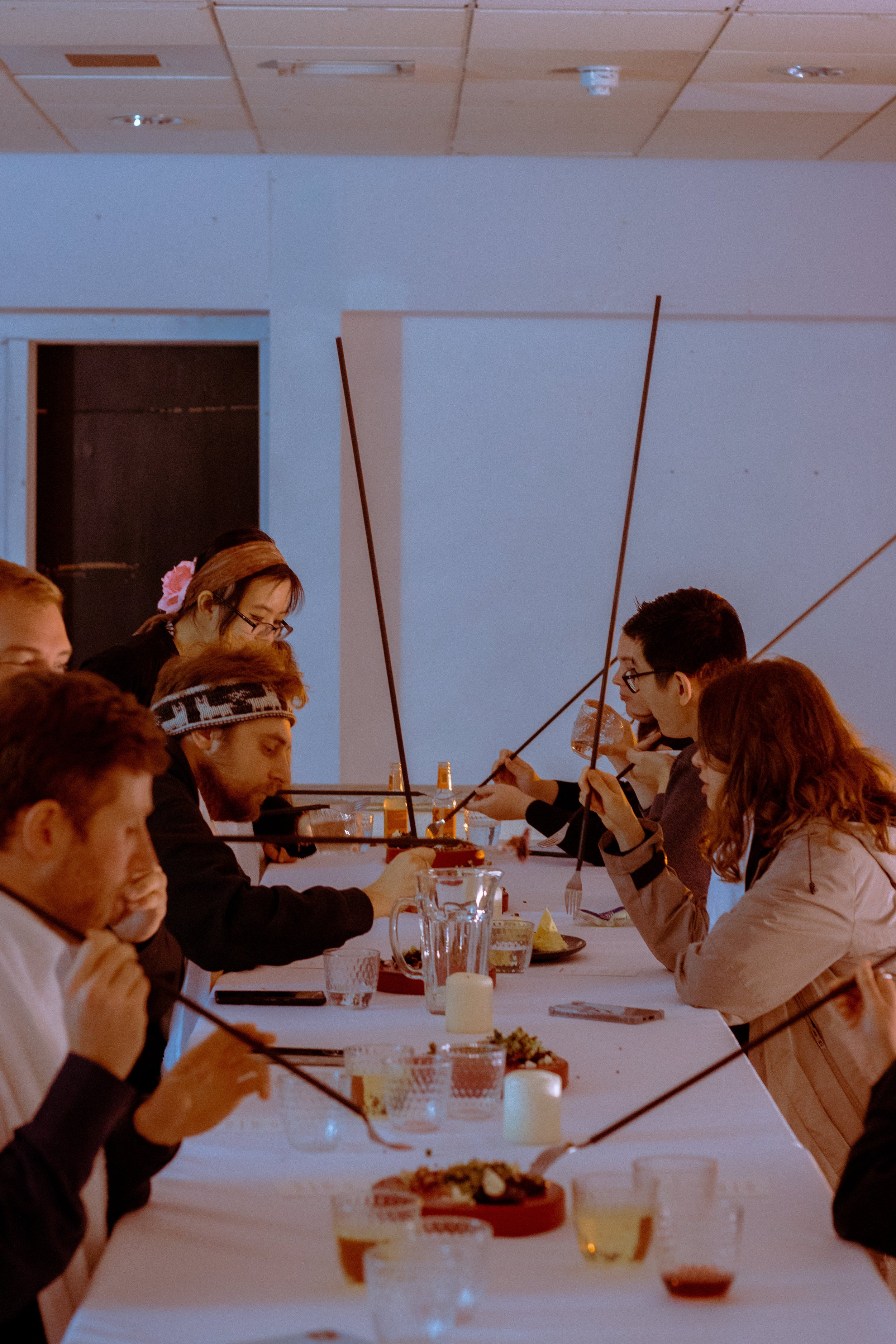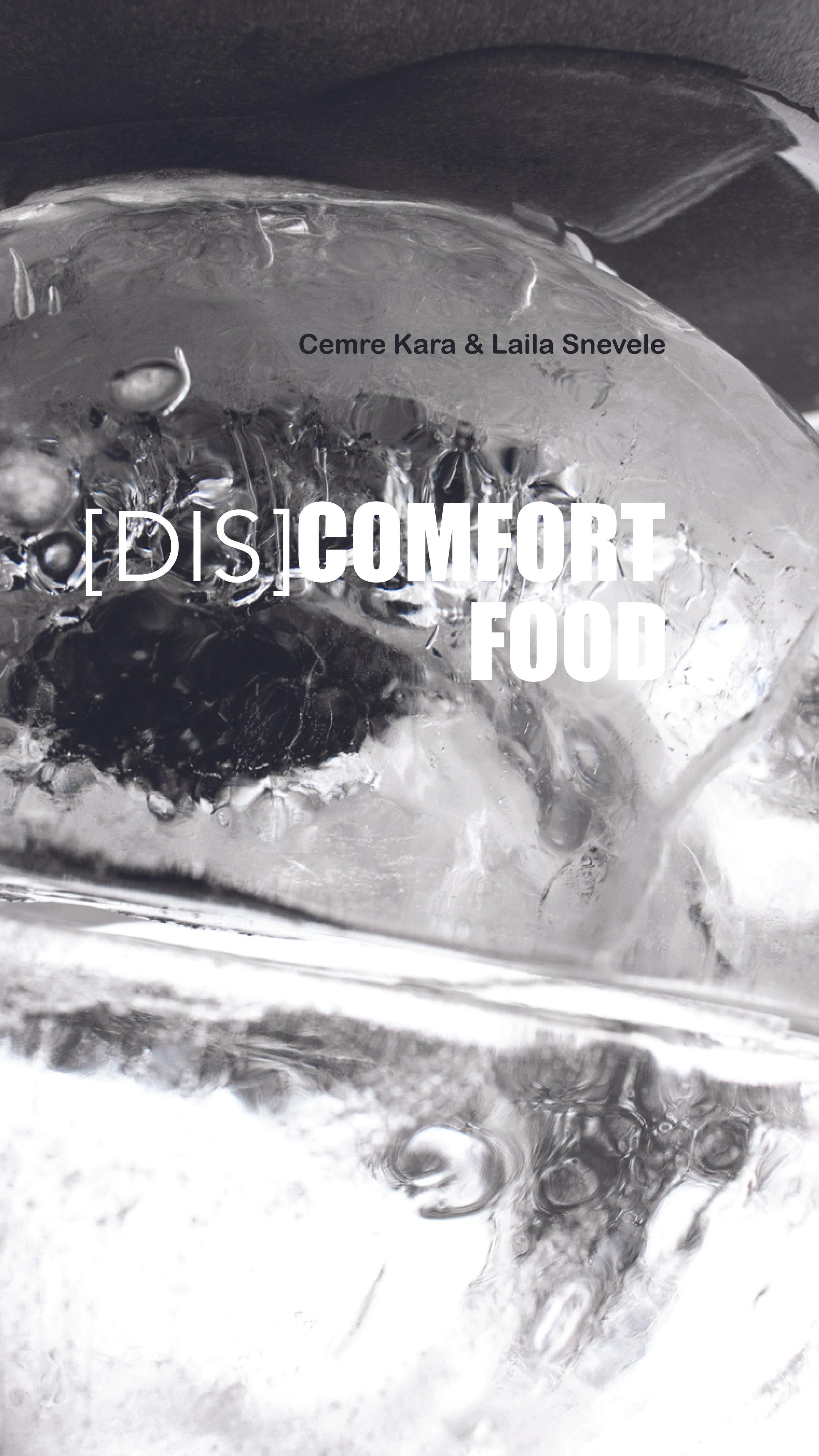[dis]comfort food
They say you start learning when you leave the comfort zone! Have you noticed how a slightly bent fork or spoon can distract you from your mindless meal? How disturbing and new it seems at the beginning until you get used to the slight change. When our movements are disturbed, we can observe how the body and mind behave in the act of learning. We want to recognize the discomfort of learning and find comfort in it.
At some point in time, the idea of the consumption of food was trans- formed from a biological necessity into a carefully cultured phenomenon of lifestyle. What we call our table manners or food ethics; The ways we consume and socialize around food are all shaped by our past and present dining traditions. But what is the reality of today’s society? Can we say that the fast-food culture reflects our state of mind? Reflecting our loss of mindfulness and falling into a comfort of abundance?
The latest research shows that learning is easier, quicker, and more long-lasting if lessons involve the body as well as the mind. This theory is called embodied cognition. But when a movement is repeated over time, long-term muscle memory is created for that task, eventually allowing it to be performed with little to no conscious effort. It becomes so comfortable that we don’t notice it anymore.
Recognizing the connection between fast culture and fast efficient food, we apply body learning to food to influence our culture. By using a tool that acts differently from known we challenge the consumer to feed themselves intuitively. Uncomfortably we take the comfort out of your meal hoping we can influence your daily food experiences to be more mindful in order to have positive effects on our everyday life and vice versa.
[dis]comfort food concept developed in collaboration with Laila Snevele/ Cemre Kara







